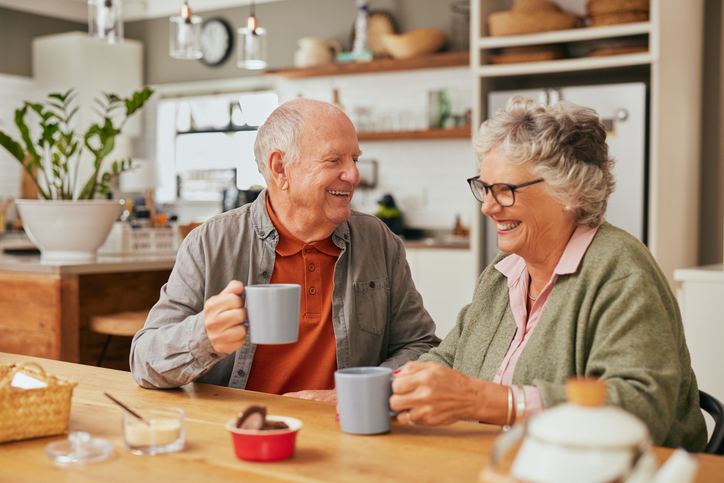Practical Tips For Ageing In Place

More and more older people opt to remain in their homes rather than move into residential care. This choice, known as “ageing in place,” is gaining popularity among older adults, and rightly so. Being able to stay in your home, surrounded by your possessions and memories, is the best choice for many people, especially when you can still receive the care you need. Here, we look at some practical advice and tips for older adults who plan to age in place.
Home Modifications for Safety and Accessibility
Making your home safer and more accessible as you age is essential. We’re not talking about massive renovations—just some smart adjustments to keep things running smoothly.
Here are some examples to consider
Bathroom Adaptations: Add grab bars, non-slip mats, and a raised toilet seat. These small changes can make a big difference when it comes to bathroom safety.
Kitchen Adjustments: Consider lowering shelves for easy access, installing lever-handled taps, and maybe even a pull-out pantry to avoid any awkward stretching.
Bedroom Enhancements: Take a look at the bedroom layout. Are pathways clear? Is the lighting good? A nightlight might be a good addition. Also, having a comfy chair near the bed can make things much more manageable.
If you’re unsure about what home adjustments are available, an Occupational Therapist (OT) can come and take a look at your home and advise you. Your GP can refer you.
Implementing Safety Measures
Now, let’s focus on implementing safety measures to avoid slips or trips and falls.
Fall Prevention Strategies
Proper Lighting: Brighten up those dark corners and hallways, and always put the lights on when moving around.
Removal of Tripping Hazards: Remove loose rugs, tangled cords, or anything hiding in plain sight. Clear pathways make for smooth sailing.
Installation of Handrails and Grab Bars: Especially in the bathroom and on stairs, ready to grab onto when you need extra support.
Lifestyle Adjustments for Independence
To continue living your best life and remain independent as long as possible, you must also care for your physical and mental health. Here are some lifestyle adjustments that can keep you thriving.
Health and Wellness Routines
Regular Exercise: There is no need for extreme workouts, but some gentle exercises can do wonders. Think about daily walks, chair exercises, or even yoga.
Balanced Nutrition: Ensure you get a mix of fruits, veggies, lean proteins, and whole grains. You can learn more about eating a balanced diet here.
Medication Management: Keeping track of medications is crucial. Consider a pill organiser or setting reminders on your phone to ensure you never miss any.
Social Engagement and Community Involvement
Socialising is good for the soul. Staying connected keeps you emotionally charged. Whether it’s a phone call, video chat, or a friendly visit. Another great way to stay connected is to check out what’s happening in your local community. Community centres, clubs, or classes can be great ways to meet new people and try new things.
Mental and Emotional Well-Being
Take a moment each day to relax and clear your mind, whether through meditation, deep breathing, or simply enjoying a quiet cup of tea. It’s okay to seek emotional support when needed and to ask for help or talk about your feelings. Whether with friends, family, or a professional, reaching out is always the best thing to do.
When extra care is needed
Live-in care can be a cost-effective alternative to residential care. At Eximius, we provide dedicated, professional, caring companions who can move in and look after you. We take care of all your personal, medical and domestic needs and provide companionship so you never feel lonely. Our care packages are personalised to meet your needs and range from basic care and companionship to complex care. Please contact us if you’d like to chat about how we can help.
Further reading:
Domiciliary, Residential, or Live-in Care – how to understand which is the right choice for you
Support For You To Support Your Loved One At Home
5 easy Tips to Stay Physically and Mentally Active in Later Life